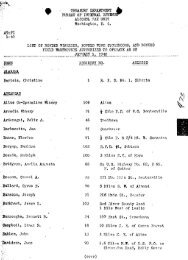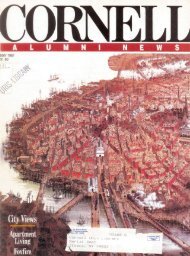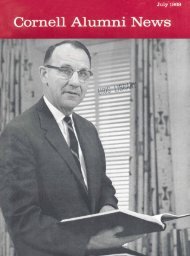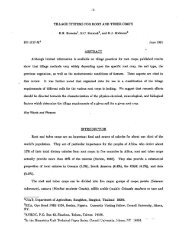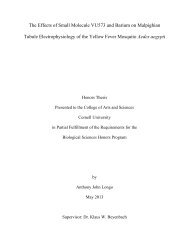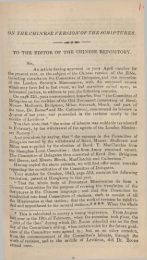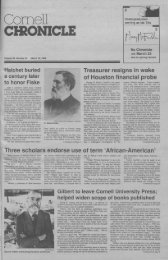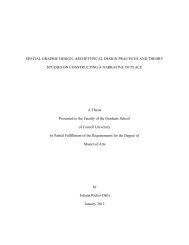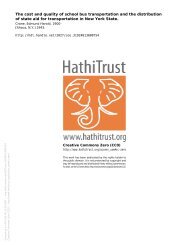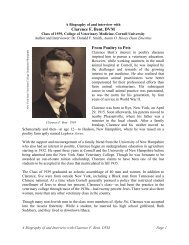archaeological and textual records - eCommons@Cornell - Cornell ...
archaeological and textual records - eCommons@Cornell - Cornell ...
archaeological and textual records - eCommons@Cornell - Cornell ...
You also want an ePaper? Increase the reach of your titles
YUMPU automatically turns print PDFs into web optimized ePapers that Google loves.
y French military conflict. The 1684 expulsion is dealt with in larger detail in the<br />
New York Colonial Documents, volume 9, “The Paris Documents,” which contains a<br />
wealth of information on the governor’s <strong>and</strong> internal affairs of the then-French colony.<br />
The Jesuit missions are not discussed at length, but they do show up in a few crucial<br />
places where there is also talk of war.<br />
In 1682, Joseph-Antoine Le Febre de La Barre was appointed Governor General of<br />
New France, succeeding General Louis de Buade de Frontenac. Upon meeting with<br />
leaders in Montreal, La Barre was charged with organizing an invasion, as it was<br />
believed “the Iroquois planned to destroy one after another western Indian nations, <strong>and</strong><br />
with them the French fur trade <strong>and</strong> the Jesuit missions in new France” (Richter<br />
1992:149). When it came to marching on Seneca l<strong>and</strong>s, La Barre justified his plans by<br />
pointing out the recent Seneca attack on Fort Saint-Louis in Illinois country, as well as<br />
many alleged assaults on fur traders. Of course, when it came to naming their disputes<br />
with Iroquoia at large, the French simply blamed the English for enticing the Iroquois<br />
to make war; <strong>and</strong> the reasoning behind any warfare or conflict boiled down to who had<br />
control of not just the l<strong>and</strong>, but the fur trade, <strong>and</strong> thus which monarch would<br />
ultimately st<strong>and</strong> to profit.<br />
The summer of 1684, Governor Dongan found out the La Barre <strong>and</strong> his men were<br />
finally on their way (after two years of bluffing), <strong>and</strong> he immediately summoned<br />
representatives from all Five Nations – but his summons had already been preempted<br />
by the Seneca, who were waiting in Albany to purchase ammunition <strong>and</strong> weapons<br />
(Richter 1992: 151). A seasoned statesman by that point in his career, Dongan seized<br />
the opportunity – <strong>and</strong> so did the Iroquoian representatives present, who believed they<br />
36



